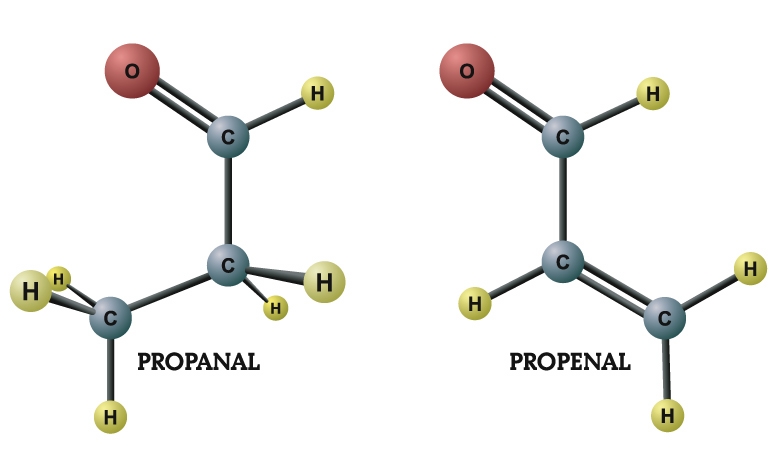Sunday, February 13, 2005
Traditional Wisdom
You know what they say: He who hesitates, is lost. Those same people say: Look before you leap. So what should we do? If you hesitate, you loose; if you don't hesitate, you loose.
The great thing about conventional wisdom is that it is free. All you have to do is sit in an easy chair somewhere and think about it.
Plain old common sense tells us that humans are too complex to have come into existence via evolution. After all, where would the first biologically-significant molecules come from? Outer space?

Actually, yes. Radio astronomers have detected signals from aldehydes, important precursors for prebiotic chemistry, in outer space. 26,000 light-years away, to be exact, in an area known as Sagittarius B2.
Actually, no. The scenarios described above are the ones that are most likely to be true, in a typical situation. But there is no guarantee that they will be true in all cases. Certainly, though, antibiotic-resistant organisms can't possibly be hardier than their non-resistant precursors, can they?
Actually, yes. Veterinary microbiologists have discovered that antibiotic-resistant bacteria can outcompete strains that are not resistant to antibiotics, even if grown in the absence of antibiotics.
The great thing about conventional wisdom is that it is free. All you have to do is sit in an easy chair somewhere and think about it.
Plain old common sense tells us that humans are too complex to have come into existence via evolution. After all, where would the first biologically-significant molecules come from? Outer space?
Actually, yes. Radio astronomers have detected signals from aldehydes, important precursors for prebiotic chemistry, in outer space. 26,000 light-years away, to be exact, in an area known as Sagittarius B2.
"The detection of the two new aldehydes, which are related by a common chemical pathway called hydrogen addition, demonstrates that evolution to more complex species occurs routinely in interstellar clouds and that a relatively simple mechanism may build large molecules out of smaller ones. The GBT [ Robert C. Byrd Green Bank Telescope] is now a key instrument in exploring chemical evolution in space," said Hollis.Traditional wisdom also tells us that bacteria will loose their resistance to antibiotics, if allowed to grow long enough in the absence of antibiotics. Sometimes, that's because the mechanism for antibiotic resistance take energy for the bacteria, and if there is no need to expend that energy, the organism will stop doing it. Even if the structural changes needed for antibiotic resistance do not require energy, the structure cannot be the optimum for the organism. That's because, if it were optimum, the organism already would have been making the structure that way.
Actually, no. The scenarios described above are the ones that are most likely to be true, in a typical situation. But there is no guarantee that they will be true in all cases. Certainly, though, antibiotic-resistant organisms can't possibly be hardier than their non-resistant precursors, can they?
Actually, yes. Veterinary microbiologists have discovered that antibiotic-resistant bacteria can outcompete strains that are not resistant to antibiotics, even if grown in the absence of antibiotics.
Enhanced in vivo fitness of fluoroquinolone-resistant Campylobacter jejuni in the absence of antibiotic selection pressureConventional wisdom is great, unless you really want to know the truth. If you do want to know the truth, you have to do the experiment. Conventional wisdom doesn't cost anything, and it is worth every penny.
Naidan Luo, Sonia Pereira, Orhan Sahin , Jun Lin, Shouxiong Huang, Linda Michel, and Qijing Zhang
PNAS | January 18, 2005 | vol. 102 | no. 3 | 541-546
Campylobacter jejuni, a major foodborne human pathogen, has become increasingly resistant to fluoroquinolone (FQ) antimicrobials. By using clonally related isolates and genetically defined mutants, we determined the fitness of FQ-resistant Campylobacter in chicken (a natural host and a major reservoir for C. jejuni) in the absence of antibiotic selection pressure. When monoinoculated into the host, FQ-resistant and FQ-susceptible Campylobacter displayed similar levels of colonization and persistence in the absence of FQ antimicrobials. The prolonged colonization in chickens did not result in loss of the FQ resistance and the resistance-conferring point mutation (C257 -> T) in the gyrA gene. Strikingly, when coinoculated into chickens, the FQ-resistant Campylobacter isolates outcompeted the majority of the FQ-susceptible strains, indicating that the resistant Campylobacter was biologically fit in the chicken host. The fitness advantage was not due to compensatory mutations in the genes targeted by FQ and was linked directly to the single point mutation in gyrA, which confers on Campylobacter a high-level resistance to FQ antimicrobials. In certain genetic backgrounds, the same point mutation entailed a biological cost on Campylobacter, as evidenced by its inability to compete with the FQ-susceptible Campylobacter. These findings provide a previously undescribed demonstration of the profound effect of a resistance-conferring point mutation in gyrA on the fitness of a major foodborne pathogen in its natural host and suggest that the rapid emergence of FQ-resistant Campylobacter on a worldwide scale may be attributable partly to the enhanced fitness of the FQ-resistant isolates.
(Note: The Rest of the Story/Corpus Callosum has moved. Visit the new site here.)
E-mail a link that points to this post:
Comments:
Post a Comment



